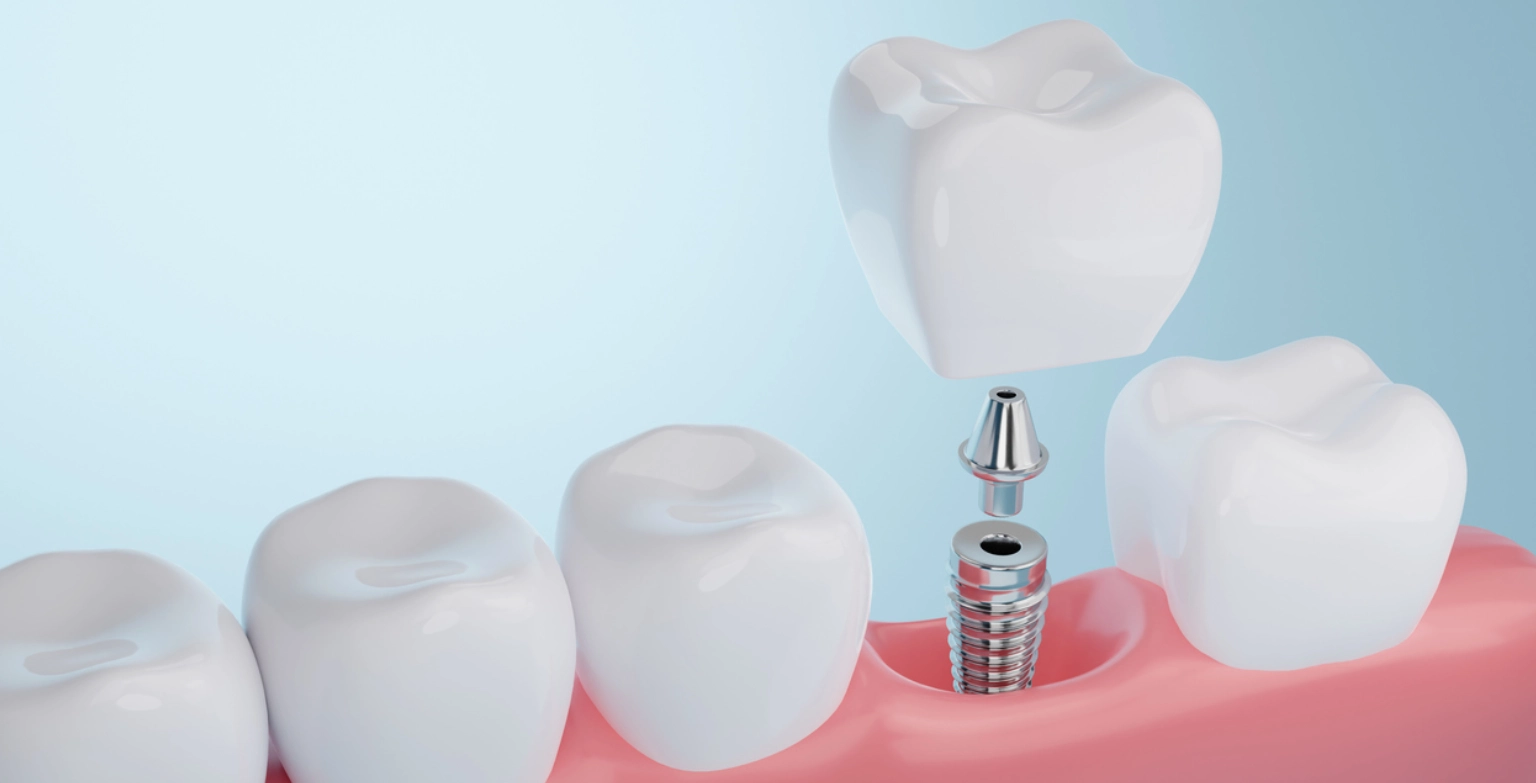Are Dental Implants Safe?

Dental implants have become the gold standard for tooth replacement, offering a permanent, natural-looking, and long-lasting solution. However, many patients have concerns about their safety, potential risks, and long-term success rates. Are dental implants safe? The short answer is yes—when placed by an experienced and skilled dental professional, dental implants are among the safest and most successful treatments in modern dentistry, with a success rate of over 95%.
Thanks to advanced dental technology, minimally invasive surgical techniques, and biocompatible materials, dental implants provide a secure and stable foundation while preserving jawbone health and facial structure. This guide explores the safety of dental implants, potential risks, and key factors that contribute to their long-term success.
What Are Dental Implants and How Do They Work?
Dental implants are artificial tooth roots made from biocompatible titanium, surgically placed into the jawbone to replace missing teeth. Through osseointegration, the implant fuses with the bone, creating a stable foundation for a dental crown, bridge, or denture.
Unlike traditional dentures or bridges, implants function independently and do not rely on adjacent teeth for support. This makes them a durable, long-term solution that closely mimics the appearance, feel, and function of natural teeth.
Are Dental Implants Safe? Understanding the Success Rate
Dental implants are considered one of the safest and most effective procedures in modern dentistry, with a documented success rate exceeding 95%. Their predictability and reliability make them a preferred solution for patients seeking permanent tooth replacement.
Key Factors That Contribute to Implant Success:
- Experienced Implant Dentist – Choosing a qualified and experienced implant specialist minimizes the risk of complications and ensures precise placement.
- Good Oral Hygiene – Maintaining proper brushing, flossing, and regular dental checkups prevents infections and promotes long-term implant stability.
- Healthy Jawbone Density – Adequate bone support is necessary for implant success. Patients with bone loss may require bone grafting before implant placement.
- Overall Health – Patients with controlled diabetes, heart disease, or osteoporosis can still receive implants, but a thorough medical evaluation is necessary before treatment.
- Avoiding Smoking – Smoking negatively affects blood circulation and healing, increasing the risk of implant failure. Quitting smoking significantly improves implant longevity and overall oral health.

By ensuring these factors are in place, dental implants can last a lifetime, providing optimal function, aesthetics, and durability.
What Makes Dental Implants Safe?
1. Biocompatible Materials
Dental implants are made from medical-grade titanium, a biocompatible material that integrates naturally with the bone without triggering allergic reactions or rejection.
2. Minimally Invasive Surgical Techniques
Modern implant surgery is precisely planned using 3D imaging and digital scans, allowing for minimally invasive procedures with reduced healing time and minimal discomfort.
3. High-Precision Technology
The use of Cone Beam CT (CBCT) scans and digital impressions ensures optimal placement, reducing surgical risks and enhancing long-term implant stability.
4. Strong Bone Integration
Through osseointegration, the implant permanently fuses with the jawbone, preventing bone loss and maintaining facial structure.
5. No Damage to Adjacent Teeth
Unlike dental bridges, which require modifications to surrounding teeth, implants are self-supporting, preserving the integrity of adjacent teeth.
Who Is a Good Candidate for Safe Dental Implant Surgery?
Most healthy adults can safely undergo dental implant surgery. However, the best candidates include:
- Individuals with one or more missing teeth
- Patients with healthy gums and sufficient jawbone density
- Non-smokers or individuals willing to quit smoking
- Patients in good overall health with well-controlled medical conditions
Even patients with bone loss, gum disease, or certain health conditions may still qualify for implants after preparatory treatments, such as bone grafting or periodontal therapy.
Are There Any Risks Associated with Dental Implants?
While dental implants are highly safe, as with any surgical procedure, there are some risks. However, complications are rare and preventable with proper care.
Potential Risks and How to Prevent Them
- Infection at the Implant Site – Bacteria can enter the surgical site, causing pain, swelling, or implant failure. Practicing good oral hygiene, taking prescribed antibiotics, and following post-op care reduces this risk.
- Implant Failure Due to Poor Osseointegration – If the implant does not properly fuse with your bone, it may fail. Bone loss, diabetes, or smoking are common risk factors. Bone grafting and pre-surgical evaluations improve implant success.
- Nerve Damage (Rare) – Incorrect placement can cause numbness, tingling, or discomfort. CBCT scans and precision surgical planning ensure safe placement.
- Sinus Complications (For Upper Implants) – Implants in the upper jaw may encroach on the sinus cavity, leading to pressure or discomfort. A sinus lift procedure may be necessary to create adequate bone support.
- Gum Recession or Bone Loss Over Time – Poor hygiene and smoking can lead to implant instability. Regular dental visits, professional cleanings, and proper maintenance ensure long-term success.
Takeaway
Dental implants are a safe, effective, and permanent solution for replacing missing teeth. With a success rate exceeding 95%, they provide stability, functionality, and a natural appearance, which makes them a superior alternative to dentures and bridges.
While all surgical procedures carry some risks, dental implants are among the most predictable and well-researched treatments in modern dentistry. With proper planning, expert care, and excellent oral hygiene, dental implants can last a lifetime, restoring smiles and confidence.
Take the First Step Toward a Healthy Smile – Schedule Your Consultation Today!
Are you considering dental implants but have concerns regarding their safety and success? Get expert guidance from Dr. Gary Login, Dr. Feldman, and Dr. Slater at Quality Sleep Solutions. Our skilled dental team ensures safe, precise, and successful implant placement for long-lasting results.
Call (617) 982-2980 today to book an appointment and take the first step toward a stronger, healthier, and more confident smile.
FAQ
Can a dental implant cause problems years later?
While dental implants are permanent and long-lasting solutions, complications such as infection (peri-implantitis), gum recession, or bone loss can develop over time. These issues often result from poor oral hygiene, smoking, or underlying health conditions. Routine dental checkups, professional cleanings, and proper at-home oral care significantly reduce the risk of long-term implant problems.
Can your body reject metal implants years later?
True implant rejection is extremely rare because dental implants are made up of biocompatible titanium, which integrates naturally with the bone. However, some individuals may develop a sensitivity to metal or experience mild inflammatory responses. If metal allergies are a concern, alternative materials like zirconia implants may be an option.
Who is not a good candidate for dental implants?
Individuals with uncontrolled diabetes, severe osteoporosis, active gum disease, or a history of heavy smoking may not be immediate candidates. Additionally, patients with insufficient jawbone density may require bone grafting before implant placement. A comprehensive dental and medical evaluation helps determine eligibility.
How long do dental implants last?
With proper dental care, regular dental visits, and good oral hygiene, dental implants can last 20 years or more and, in many cases, a lifetime. Success depends on bone integration, overall health, and maintenance practices like daily brushing, flossing, and avoiding harmful habits like smoking.
Do dental implants feel like real teeth?
Dental implants function just like natural teeth because they integrate with your jawbone, providing stability and strength. Unlike dentures, implants do not slip, shift, or cause discomfort, allowing for normal chewing, speaking, and confidence in daily activities.
Are dental implants painful to get?
The dental implant procedure takes place under local anesthesia or sedation, ensuring minimal discomfort. Some mild swelling or soreness is expected after surgery, but it can be easily managed with prescribed or over-the-counter pain relievers. Most patients return to normal activities within a few days.
Bibliography & Sources
- American Academy of Implant Dentistry (AAID) – www.aaid-implant.org
- American Dental Association (ADA) – www.ada.org
- Mayo Clinic – Dental Implants Overview – www.mayoclinic.org
- National Institute of Dental and Craniofacial Research – Implant Success Factors – www.nidcr.nih.gov

If you are looking for a dentist in Brookline, MA, schedule your consultation with the team at Brookline Smile Artists. We offer Cosmetic and Restorative Dentistry. We are located at 209 Harvard Street, Suite 402 in Brookline. Our office hours are Monday through Thursday from 7:30 AM to 5:30 PM and Friday from 8:00 AM to 2:00 PM.

One of the top rated dentists in Brookline, MA




